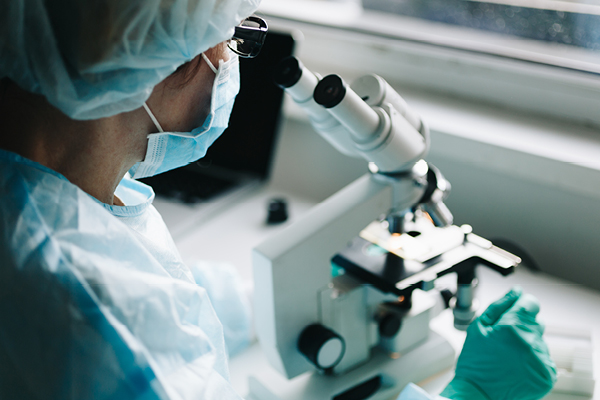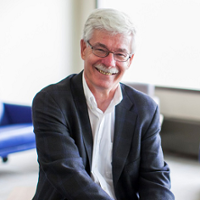
The problem with science-based public policy
We have a problem with how we situate science in our policy system. Increasingly we hear politicians, policy makers, policy entrepreneurs and citizens invoking science as the rationale or justification for specific policy action.
By Peter WB Phillips, CSIP Director and Distinguished Professor, Johnson Shoyama Graduate School of Public Policy, University of SaskatchewanWe have a problem with how we situate science in our policy system. Increasingly we hear politicians, policy makers, policy entrepreneurs and citizens invoking science as the rationale or justification for specific policy action.
Advocates for vaccine mandates, masking and quarantine rules assert that the science of Covid justifies the actions taken. Proponents for more aggressive climate policies argue that the evolving science of climate change mandates specific actions and timelines.
For those who like the choices we are making, the anchor of scientific evidence is comforting and compelling. The problem is that those who might disagree with the policy response have no way of debating those responses without also challenging the science itself. Surveys across the world show that a growing number of people everywhere refuse to accept the science underpinning these and many other policy actions.
The conflation of scientific evidence with policy action is at the heart of the policy problem about science itself.
Don’t get me wrong – I fully believe that scientific advice is absolutely necessary for good policy. Scientists present theoretically-grounded, methodologically-tested and empirically-verified findings that show cause and effect and scale of impacts. This defines what is happening and what we might wish to do about something happening. There is often little room to debate about these findings. We should defer to the experts on matters that are grounded on good scientific methods.
Scientists offer powerful and compelling evidence on many issues of public import, such as the virulence of a disease, the efficacy of a vaccine, the impact of greenhouse gasses on the climate, and the contribution of human activities to the toxicity of our water, soils and air and the concomitant impact on human health and the environment.
But scientists have no authority to assert that their findings tell us how to respond. Like everyone else in society, they are entitled to their own opinions, but their preferences are no more legitimate than anyone else’s.
When we conflate scientific findings and expertise with some authority to define the preferred actions or responses, we truncate democratic debate. It seems that the only way to challenge the choices being made for us in this world is to challenge science itself. This creates the so-called anti-science push-back by normal citizens.
I fully agree that the science about Covid and climate change presents a compelling case for action, but I do not accept that the scientific findings actually define what we should do, when and how.
We always have choices about how to respond. Sometimes we may ignore a problem, because it is too narrow and small to warrant action or because there is nothing we can do without making it worse. When we do decide to act, who does what, when, how and with what tools and resources involves a choice that balances needs, opportunities and resources.
These choices are in the realm of policy and should always be open for public debate. Science cannot and should not be used to stop discussion. Yet today people who challenge some of the policy choices that affect their lives and wellbeing are told that their views and preferences are irrelevant because science has spoken. That is profoundly wrong. In democracies, citizens are the only source of legitimate choice.
To sustain a legitimate and effective debate, we need to redraw the boundary between scientific advice and the policy response. To do that scientists will need to step back from advocating for their preferences based on their work and politicians are going to need to come out from behind the science and take responsibility for their actions.
Science can and does tell us about things that may matter and helps us define the range of responses that can help. We need to protect science so that it can continue to provide this critical function. But the only way to sustain the legitimacy of science is to focus it on providing inputs for consideration and leaving room for democratic debate.
What we do about scientifically-derived findings is and always should be the choice of individuals and society. Scientists as individuals can and should engage in this discourse, but they should have no more status or influence than anyone else.
I know some would like a world where experts rule, but technocracies or societies run by philosopher kings seldom are happy or sustainable systems. Politician scientist Harold Laski in 1924 was sharply critical of experts: “they cannot understand that their expert knowledge is open to independent inquiry… the business of an expert is to be on tap and not on top.”
Peter W.B. Phillips

Dr. Peter W.B. Phillips is the director of the Centre for the Study of Science and Innovation, and a distinguished professor in the Johnson Shoyama Graduate School of Public Policy's University of Saskatchewan campus.
He earned his Ph.D. at the LSE and practiced for 13 years as a professional economist in industry and government. At the University of Saskatchewan, he was the Van Vliet Research Professor, created and held an NSERC SSHRC Chair in Managing Technological Change in Agriculture, and was director of the virtual College of Biotechnology.
He has had appointments at the LSE, OECD, European University Institute in Florence, University of Edinburgh and University of Western Australia. He was a founding member of the Canadian Biotechnology Advisory Committee and was on the boards of Canadian Agri-food Policy Institute, Pharmalytics and Ag-West Bio Inc. He has also held over 15 peer-reviewed grants worth more then $250 million and is author/editor of 15 books, and over 60 journal articles and 55 book chapters.

